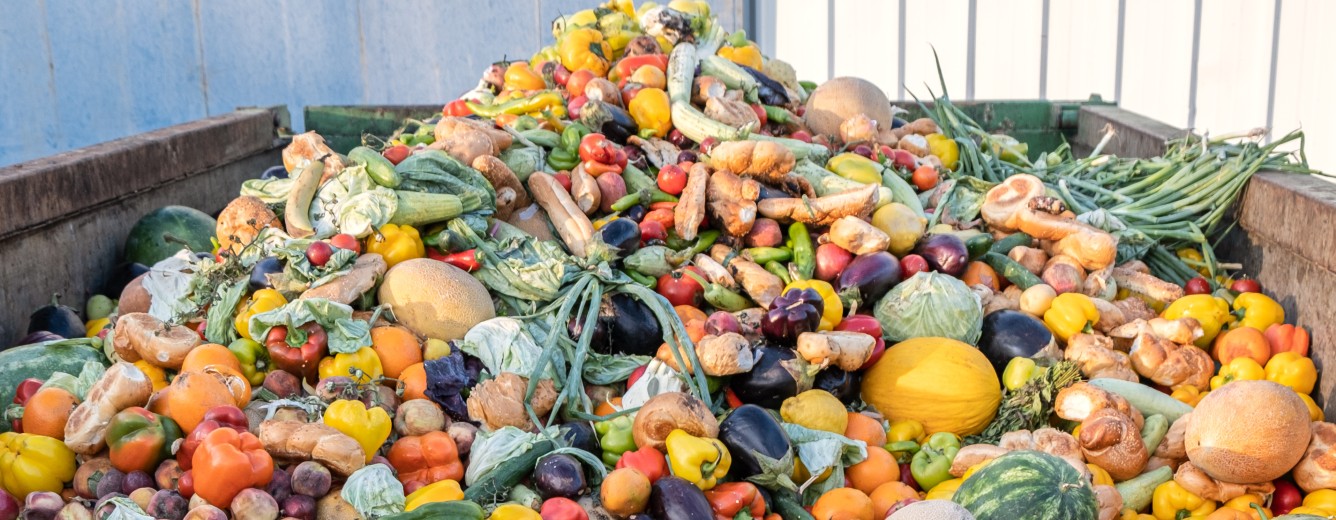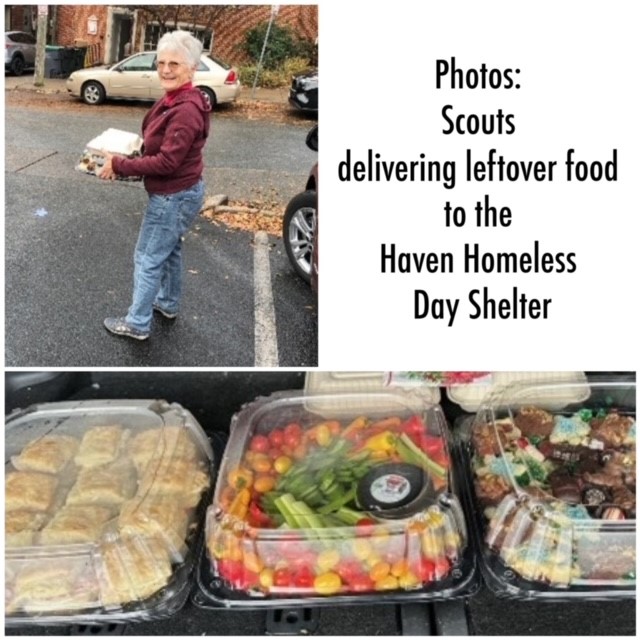Introduction:
As the holiday season moves into high gear, one envisions elegantly set tables adorned with traditional festive dishes such as mashed potatoes, roast turkey, and cranberry sauce. Following the feast shared with family and friends, a common aftermath emerges—abundant leftovers. This holiday season, we advocate for a conscientious and strategic approach to managing your holiday meals and leftovers, recognizing that individual actions can significantly impact sustainability initiatives.
Reducing food waste is a multifaceted challenge with far-reaching benefits and effects. These encompass environmental sustainability, resource efficiency, economic savings, social equity, and ethical considerations. Global and nationwide food waste reduction requires various strategies, including individual behaviors, business practices, and policy initiatives. While business practices and policy may be beyond an individual’s reach, decisions within our homes can cumulatively have a vast effect on the health of the world around us.
Why It Matters:
Environmental Impact: The U.S. Environmental Protection Agency (EPA) published a report in 2021 on the environmental impacts of food waste (EPA 2021). The EPA estimated that each year, U.S. food loss and waste embodies 170 million metric tons of carbon dioxide-equivalent greenhouse gas (GHG) emissions – equal to the annual CO2 emissions of 42 coal-fired power plants. An important note is that this does not include the significant methane emissions from food waste rotting in landfills (U.S. Department of Agriculture [USDA] 2022).
Every year in the U.S., approximately 31%, or 133 billion pounds, of the overall food supply is wasted; this contributes up to 18% of total U.S methane emissions from landfills (EPA 2021). When food is wasted so too is the land, water, labor, energy, and other inputs involved in producing, processing, transporting, preparing, storing, and disposing of the discarded foods. In one year, the production of food that ended up wasted in the U.S. required enough water and energy to supply more than 50 million homes. Additionally, the land required to produce said food is equal to an area of agricultural land equal to California and New York combined (EPA PWFH 2023).
Economic Impact:
In the U.S., based on a 31% food loss at the retail and consumer levels, food waste is estimated at 30-40% of the food supply. This equates to approximately 133 billion pounds and $161 billion worth of food in 2010. The USDA states that the average American family of four loses $1,500 each year on food that does not get eaten (or approximately $370 per person annually).
What Can I Do?
The USDA outlines four simple steps to help each American take part in the reduction of food waste:
- Plan Ahead – Before heading to the grocery store or ordering online, make a list so you don’t buy more than you need. This also allows for the opportunity to check what you already have, which prevents purchasing more than what is necessary. Avoid impulse bulk purchases: promotions encouraging purchases of bulk products often result in consumers buying foods outside their typical needs so large portions often end up in the trash. In essence, don’t buy more food than can be used before it spoils.
- Serve Smart – Portion control can be beneficial to your health as well as the environment. When eating out, if you’re not feeling particularly hungry, ask your server if it’s possible to be given a smaller portion or, if you’re not alone, ask if anyone you’re with would be interested in sharing a dish. When these options are not available, the next step becomes vital.
- Love Your Leftovers – Pack leftovers in small portions in shallow containers, mark the contents and date, refrigerate, and use within 3-4 days or freeze immediately. To keep foods safe after eating out or while entertaining, remember the two-hour rule: don’t leave perishable foods at room temperature for more than two hours. Additionally, check your fridge often to keep track of what you have and what needs to be used. Eat or freeze items before you need to throw them away.
- Compost, Don’t Trash – Food scraps can be recycled into compost. Some municipalities collect compost directly in your green bins. If you don’t have that option, there are other methods to use. Set up a home compost bin or drop your food waste at a local compost center. The Institute for Local Self-Reliance offers several resources on their website if you’re interested in composting at home. This includes an article “Home Composting Basics”, an “Introduction to Home Composting Workshop on YouTube” video as well as an online virtual training. If you’re limited on outdoor space, several indoor options exist. For a small budget a “green bin” under you sink can be used for collecting food scraps that you can take to a local compost center.
- Donate the Food – Last week Scout hosted an employee gathering. After the event we had a lot of leftover food. After re-packaging and refrigerating the food we took the food to the Haven Homeless Day Shelter – they were so happy and so were we! Here are some pictures of the food and the delivery!
Additional Tips:
- Designate a space in your fridge for items that need to be used first or that will be going bad in the next few days.
- Use slightly damaged produce for smoothies or soups for your friends and family.
- Freeze produce that is close to expiring for use in smoothies. Lettuce and other greens can be blended and poured into an ice cube tray for ease in adding to smoothies.
- If you have more food on hand than you can use or need, consider donating your extra supply of packaged foods to a local food pantry or a food drive.
- Use the FoodKeeper App. FoodKeeper is available for Android and Apple devices. This app helps you understand food and beverage storage to help maximize the freshness and quality of items and, in turn, keep items fresh for longer than if they were not stored properly.
Conclusion:
In this holiday season (and all year for that matter), it’s helpful to recognize the substantial impact of individual actions on reducing food waste and climate change. At Scout, we are committed to projects that address climate change and promote sustainability, and we strive to incorporate these values into our personal lives as well.














